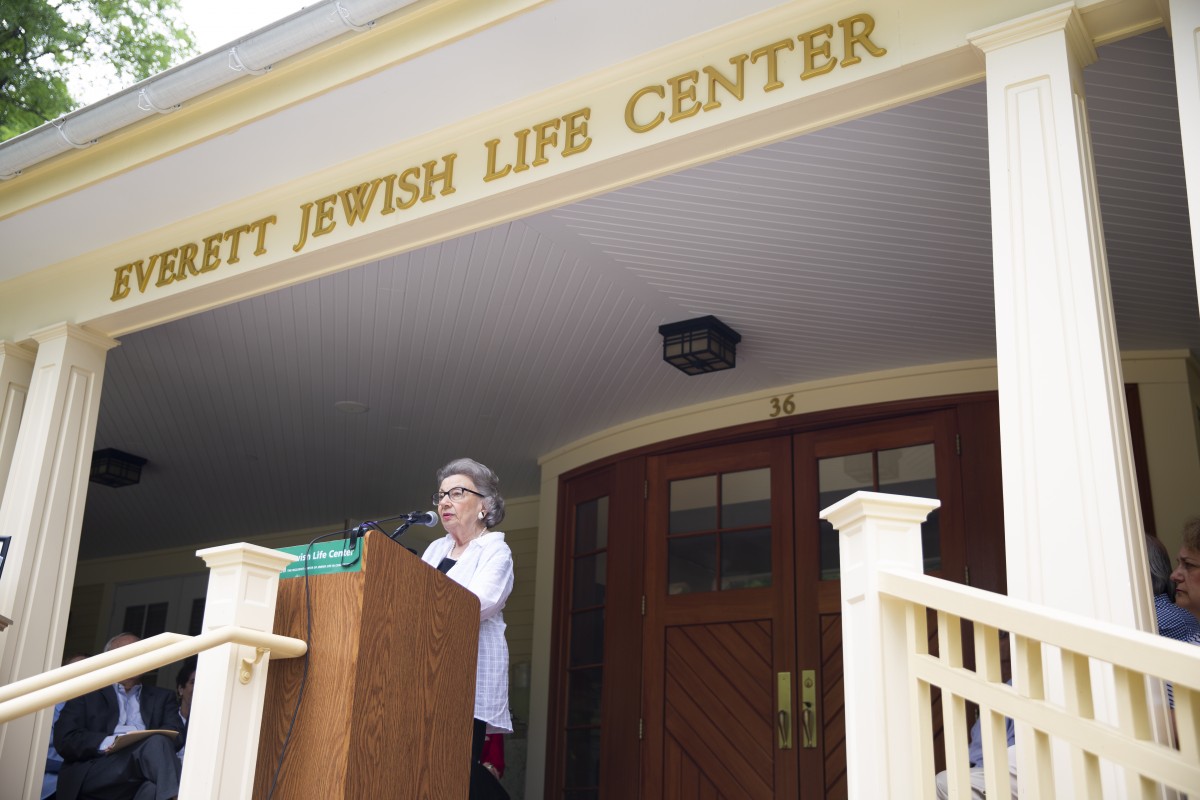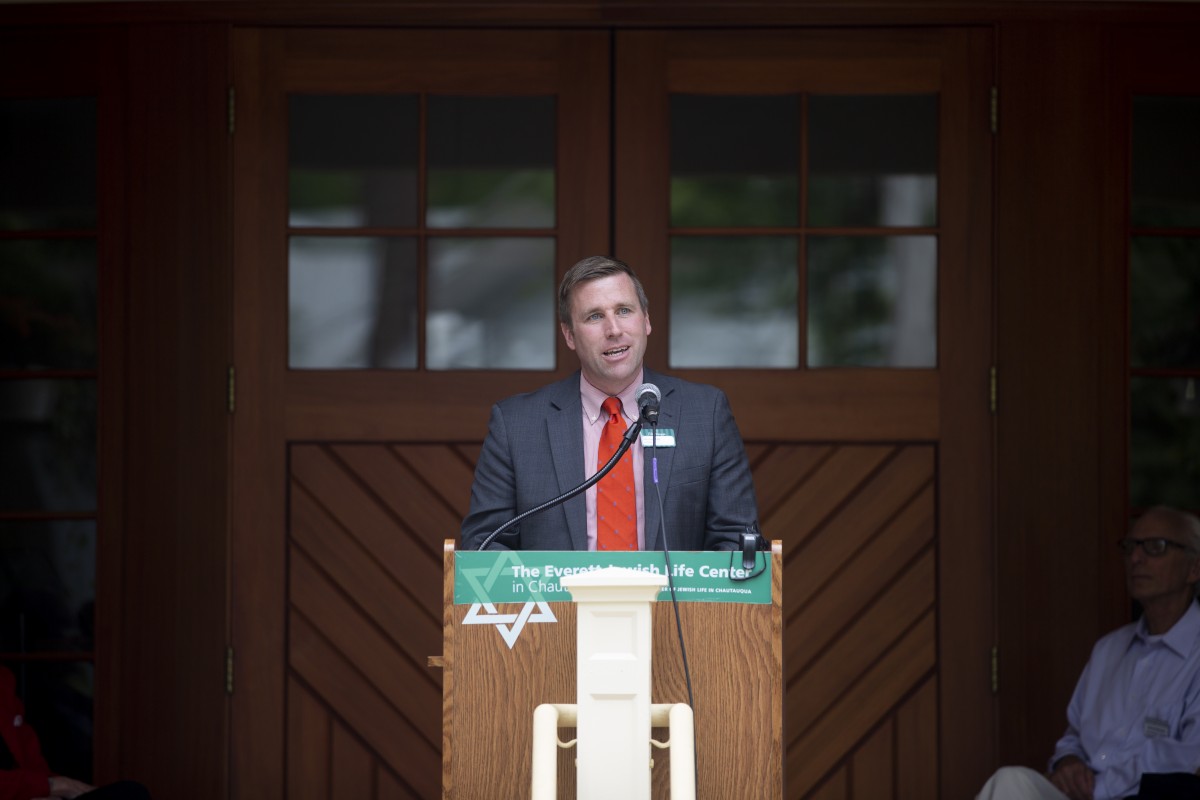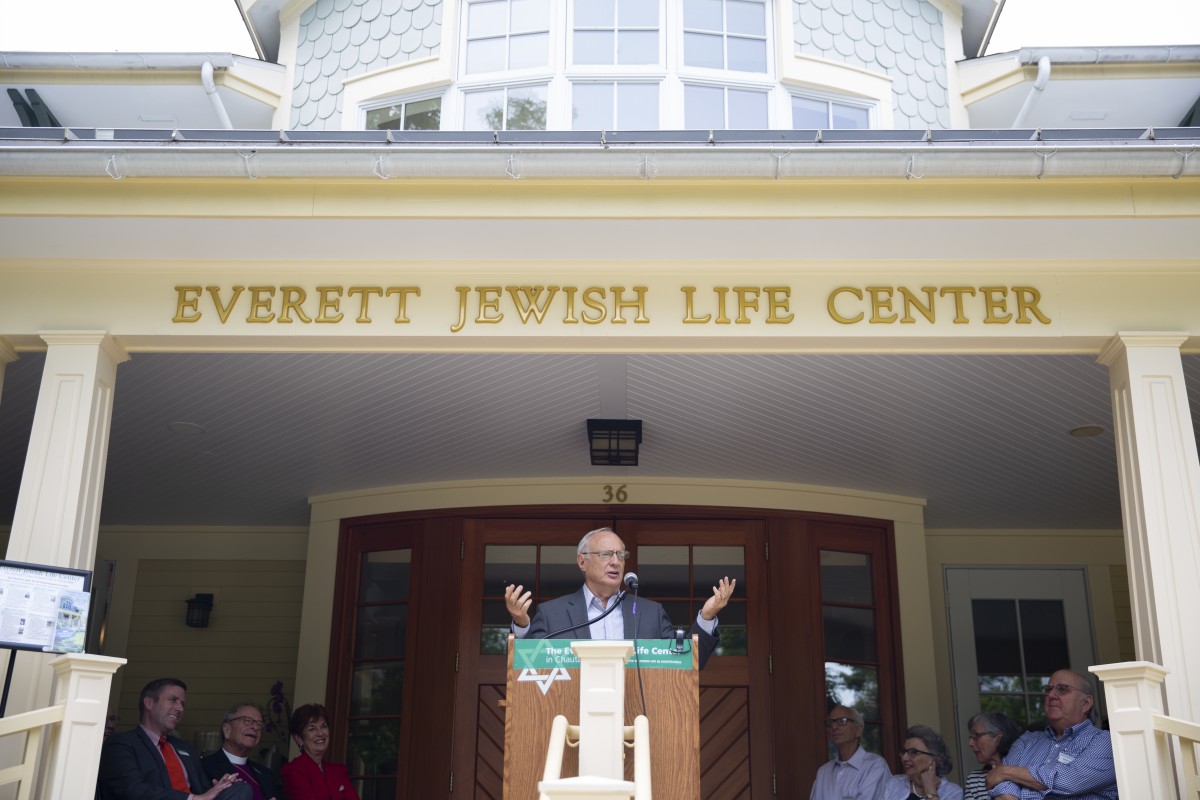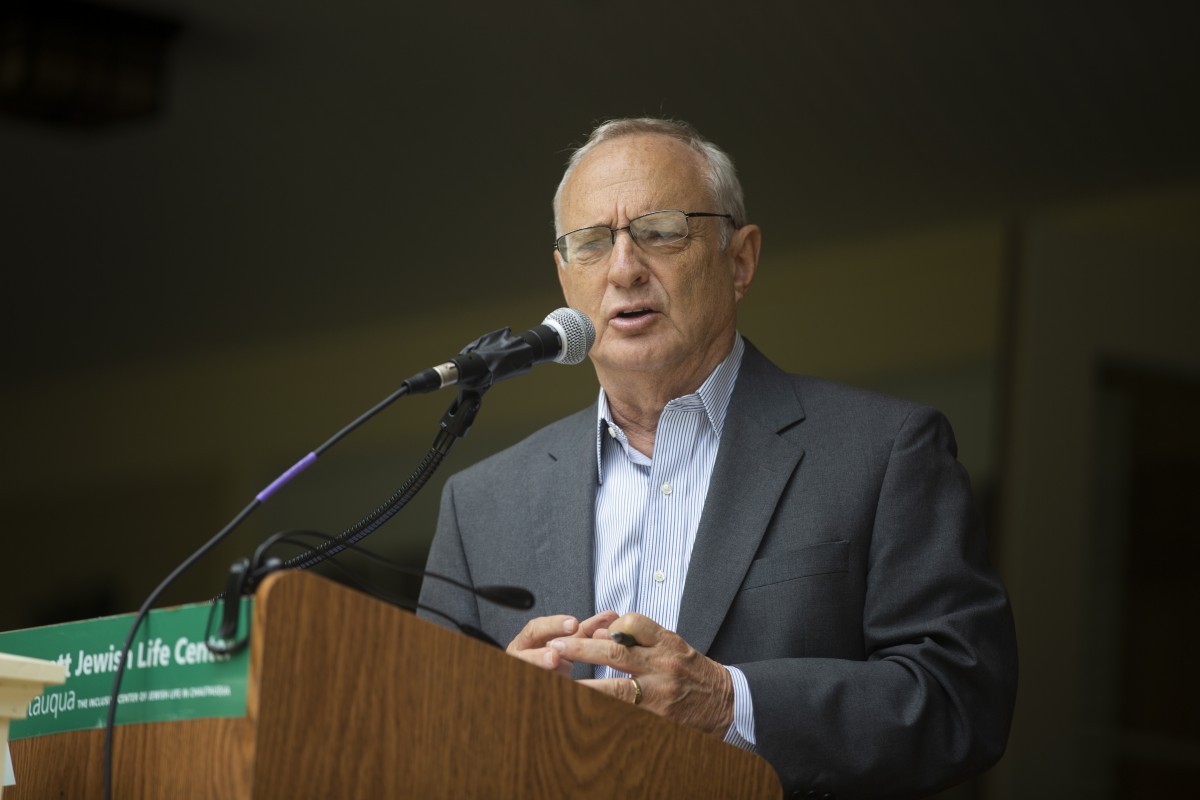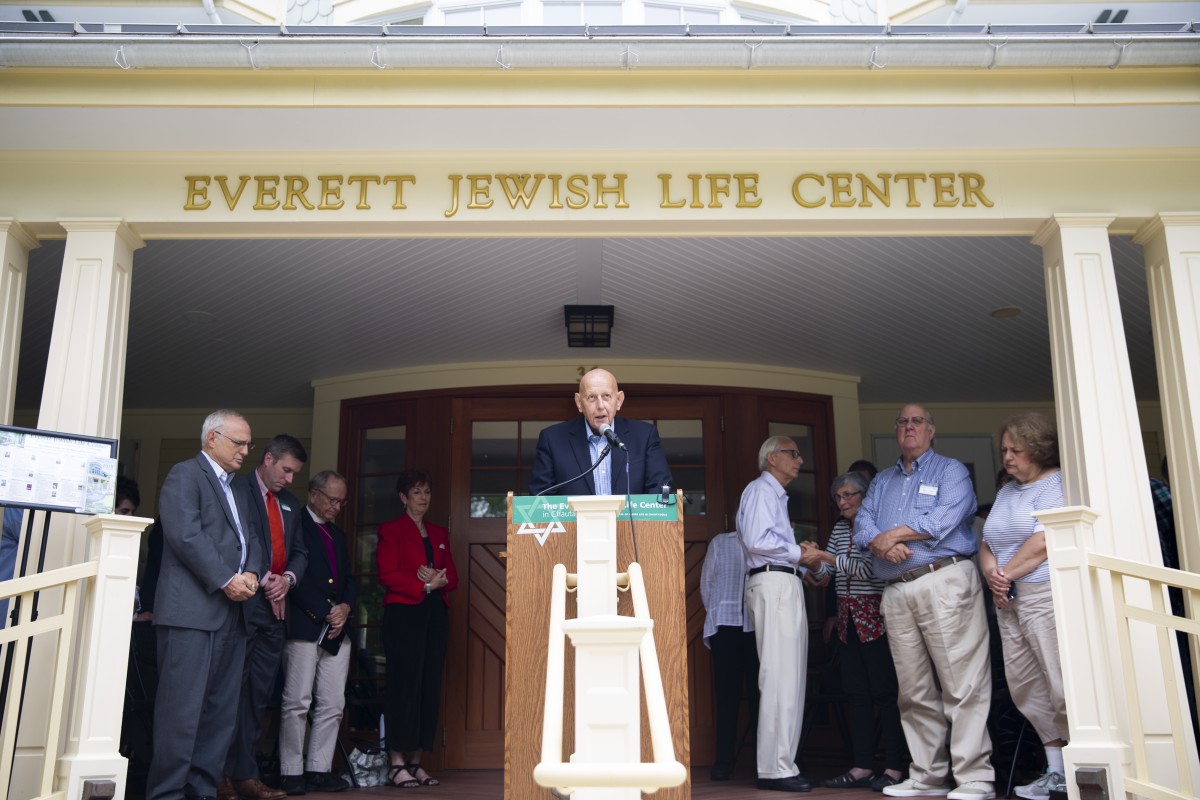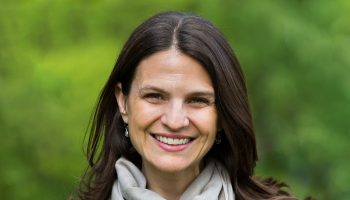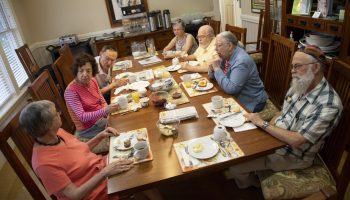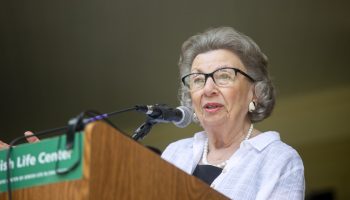Is it more Jewish to feed matzah to the children on Seder, or to feed the starving children in South Sudan?
This was one of the questions Rabbi David Saperstein asked last week on a sunny afternoon at the Everett Jewish Life Center in Chautauqua.
At 12:30 p.m. on Tuesday, July 31, the EJLCC celebrated its 10th anniversary with a rededication ceremony, featuring Saperstein, who bestowed the original dedication in 2009, as the keynote speaker.
Saperstein’s address investigated the role of Judaism and, more broadly, religious communities, in addressing modern-day moral issues.
Intersections of social issues and religious tradition ran throughout Saperstein’s address. He went on to say that neither matzah nor feeding the hungry should take precedent, and that “study, worship and acts of loving kindness” all held equal importance for modern adherents of the Jewish faith.
Saperstein’s lecture didn’t focus on answering any exact question surrounding morality or social justice. Instead, he defended religious tradition and interfaith dialogue as worthwhile and effective ways to address those issues.
“In a world in which you can do anything, what you should do, the moral question, is a fundamental challenge facing humanity. And on that question our religious traditions, our history, have urgent, profound, and indispensable wisdom,” Saperstein said. “That is what Chautauqua stands for. It is in such a spirit and at such a time as this that we gather for this rededication. And it is important to remember that from the wisdom of our texts and our traditions and the lessons of our histories, we can bring insights that are so valuably needed.”
Chautauqua Institution President Michael E. Hill, who spoke just before Saperstein, did bring the focus to a particular issue. Hill agreed that the EJLCC stands as a symbol of religious tradition and interfaith dialogue, but said it transcends those themes as a symbol of inclusivity and progress.
It is progress, Hill said, because of Chautauqua Institution’s “imperfect history with welcoming new communities within its gates.”
“A Jewish person could not buy or build a house (on the grounds) until 1965. That’s relatively recent history,” said Edith Everett, the EJLCC’s founding benefactor. “And there were vestiges of anti-Semitism (after 1965); many of the Jews were not happy to talk about anything Jewish. They felt uncomfortable.”
According to Everett, attitudes changed over the years, in part due to the Institution’s focus on diversity and inclusivity. But as of the early 2000s, she said, the Jewish community still didn’t have its own gathering place.
After her husband, Henry Everett, died in 2004, Everett decided to change that, so she began working with other Chautauquans on the project that became the ELJCC, which opened in 2009. In the 10 seasons since then, Everett has been pleased with the center’s effect on Chautauqua.
“The impact that it had on the Jewish community has been terrific because, the truth is, there wasn’t a lot of overt Jewishness (at Chautauqua), if you know what I mean,” Everett said. “People didn’t want to talk about it so much, but now people feel very comfortable about who they are, which has really impressed me.”
Going forward, Everett isn’t sure what Chautauqua Institution or the ELJCC will become. But in his address, Hill concluded with a challenge for both institutions.
“And now, as you celebrate your 10th anniversary of this important convening location, you have an increased role to play as Chautauqua again asks, ‘Who is missing, and how do we welcome them?’ ”
-Michael E. Hill, President, Chautauqua Institution


